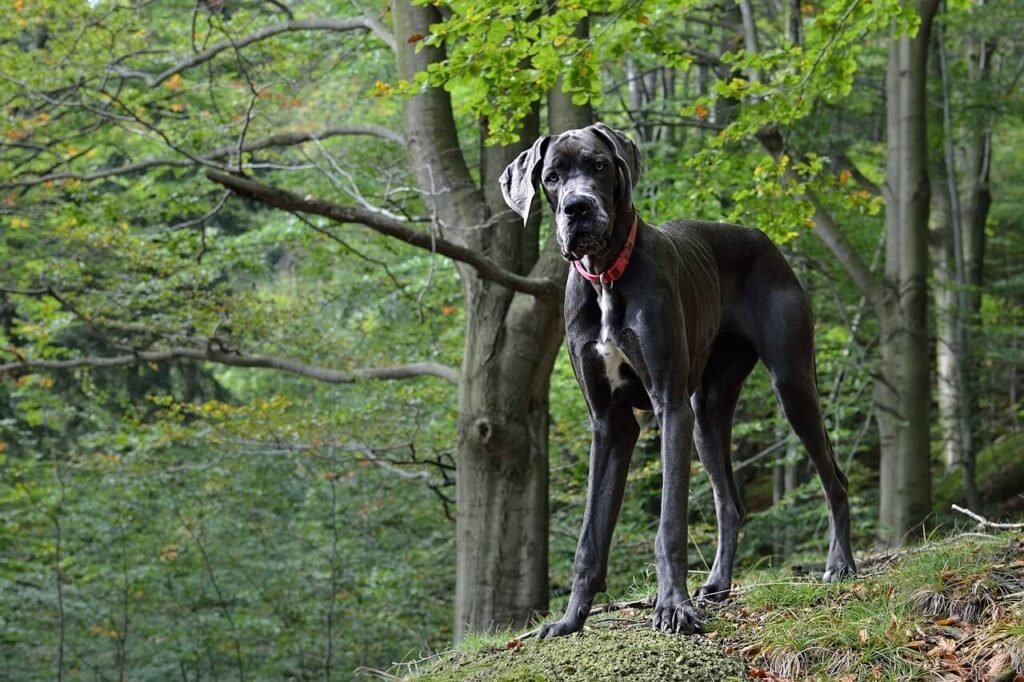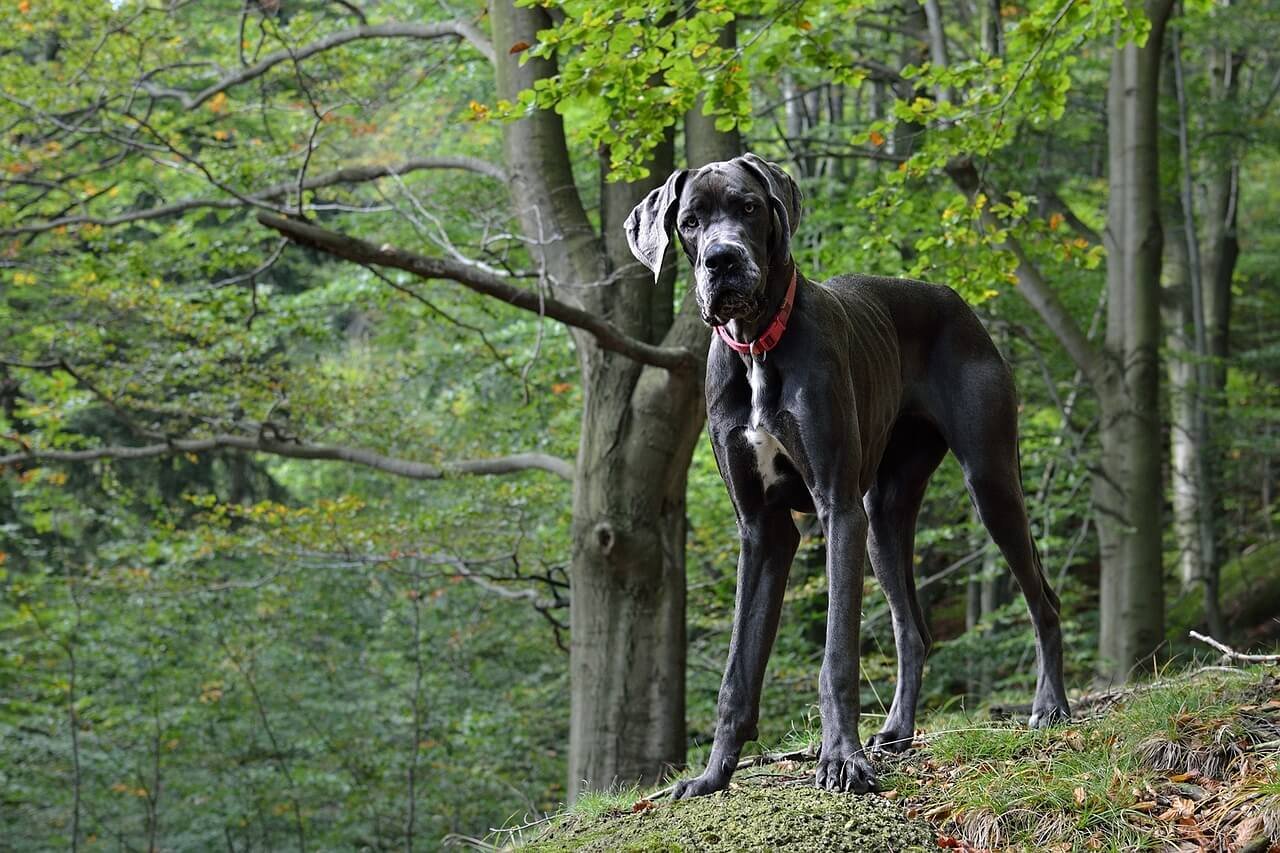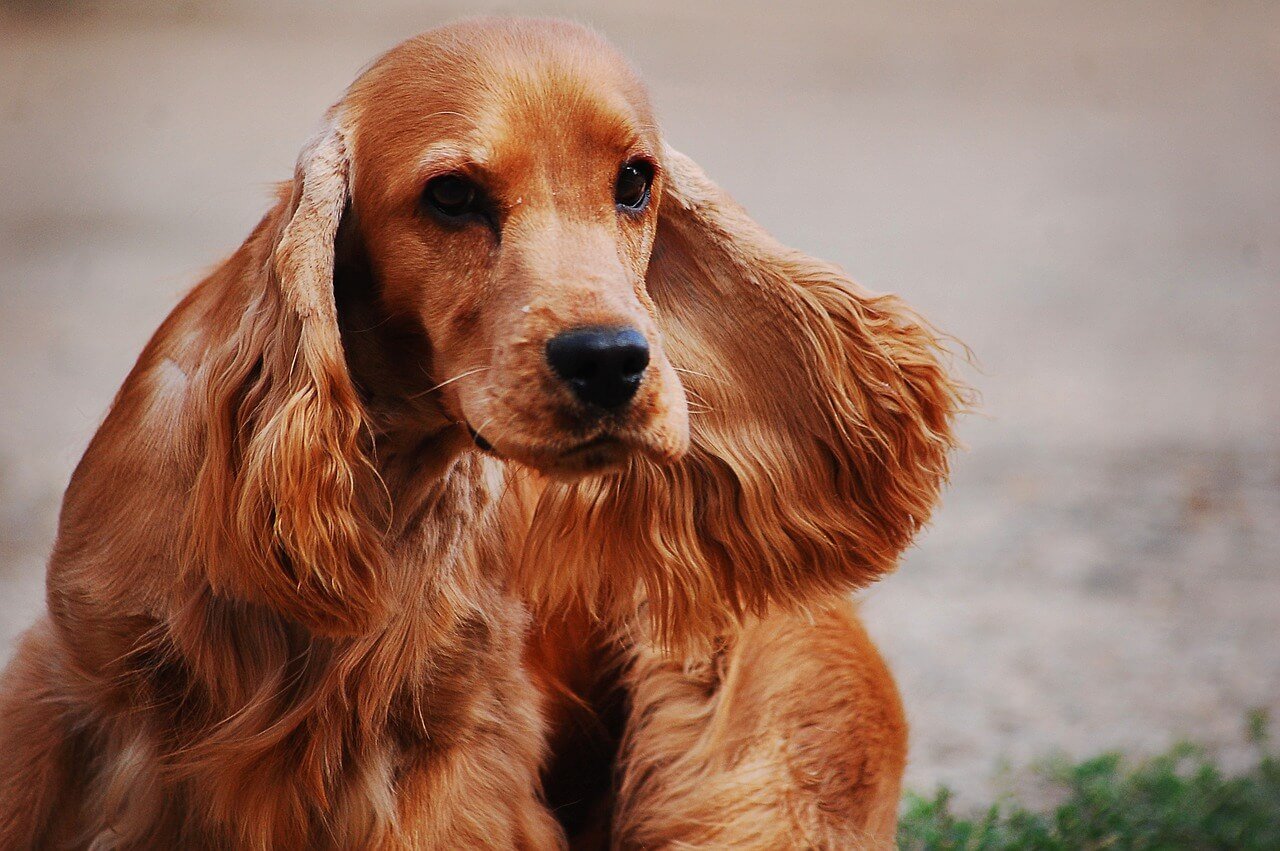How Long Does a Great Dane Live? Understanding Their Lifespan
Great Danes are often referred to as “gentle giants” due to their towering size and affectionate nature. However, one of the most common questions prospective owners ask is, “How long does a Great Dane live?” While these majestic dogs bring immense joy and companionship, their lifespan is relatively short compared to smaller breeds. In this blog post, we’ll explore the factors that influence a Great Dane’s lifespan, provide expert tips for extending their years, and offer insights into how you can ensure your furry friend lives a happy and healthy life. By understanding their needs and challenges, you can make the most of the time you have with your beloved Great Dane.
The Average Lifespan of a Great Dane
The lifespan of a Great Dane is influenced by their size, genetics, and overall health. On average, these gentle giants live between 7 to 10 years. Below are key factors that contribute to their relatively shorter lifespan:
Large Breed Challenges: Larger dogs tend to have shorter lifespans due to faster growth rates and increased strain on their bodies.
Genetic Predispositions: Great Danes are prone to certain hereditary conditions that can impact their longevity.
Rapid Growth Phase: Their quick growth during puppyhood can lead to joint and bone issues later in life.
Heart Conditions: Dilated cardiomyopathy, a common heart disease in Great Danes, often shortens their lifespan.
Cancer Risks: This breed has a higher susceptibility to various types of cancer, which can be life-threatening.
Understanding these factors highlights the importance of proactive care to maximize their quality of life and extend their years with you.
Factors That Affect a Great Dane’s Lifespan
Several factors play a role in determining how long a Great Dane will live. By addressing these areas, owners can help their dogs stay healthier for longer. Here’s a breakdown of the key influences:
Diet and Nutrition: Proper nutrition is critical for managing weight and supporting joint health in large breeds.
Exercise Needs: Moderate exercise helps maintain muscle tone and prevents obesity, but overexertion should be avoided.
Veterinary Care: Regular check-ups and early detection of health issues can significantly improve lifespan.
Living Environment: A safe, stress-free home minimizes risks of injury or anxiety-related problems.
Mental Stimulation: Keeping your Great Dane mentally engaged reduces boredom and promotes overall well-being.
By focusing on these factors, you can create an environment that supports your Great Dane’s longevity and happiness.
Check this guide 👉How Tall Is a Great Dane? Best 7 Expert Tips!
Check this guide 👉The Great Shepherd Dog: Best 7 Expert Tips!
Check this guide 👉Best Dog Food for Great Danes: 7 Expert tips!

Health Tips for Great Danes | Common Health Issues to Watch For |
|---|---|
Feed a balanced, high-quality diet | Bloat (Gastric Torsion) |
Maintain a healthy weight | Hip Dysplasia |
Schedule annual vet check-ups | Dilated Cardiomyopathy |
Provide joint supplements | Osteosarcoma (Bone Cancer) |
Avoid excessive exercise | Hypothyroidism |
Best Practices for Extending Your Great Dane’s Life
While genetics play a significant role in a Great Dane’s lifespan, there are steps you can take to give them the best chance at a long and fulfilling life. Here are some expert-recommended practices:
Early Socialization: Expose your Great Dane to different people, animals, and environments as a puppy to build confidence.
Consistent Training: Positive reinforcement training fosters good behavior and strengthens your bond.
Preventive Measures: Use elevated food bowls and avoid vigorous activity after meals to reduce bloat risk.
Joint Care: Incorporate glucosamine or chondroitin supplements to support joint health as they age.
Stress Reduction: Create a calm and predictable routine to minimize anxiety and promote relaxation.
Implementing these strategies can help mitigate common health risks and enhance your Great Dane’s overall quality of life.
Signs of Aging in Great Danes
As Great Danes enter their senior years, they may exhibit signs of aging that require special attention. Recognizing these changes early allows you to provide the necessary care. Here are some common indicators:
Decreased Energy Levels: Older Great Danes may become less active and prefer rest over play.
Weight Changes: They might lose or gain weight due to metabolic shifts or reduced mobility.
Joint Stiffness: Arthritis or difficulty moving could signal joint-related issues.
Dental Problems: Bad breath, gum inflammation, or tooth decay may worsen with age.
Behavioral Changes: Increased clinginess, confusion, or irritability can indicate cognitive decline.
Monitoring these signs ensures timely intervention and keeps your senior Great Dane comfortable and content.
Daily Care Tips for Great Danes
Caring for a Great Dane requires attention to their unique needs as a large breed. From grooming to exercise, daily care plays a crucial role in their overall well-being. Here are some essential tips for keeping your Great Dane happy and healthy:
Grooming Routine: Brush their short coat weekly to remove loose hair and distribute natural oils.
Nail Trimming: Keep their nails trimmed to prevent discomfort or joint issues caused by overgrown nails.
Ear Cleaning: Check and clean their ears regularly to avoid infections, especially if they spend time outdoors.
Dental Hygiene: Brush their teeth at least 2-3 times a week to reduce plaque buildup and prevent gum disease.
Temperature Regulation: Protect them from extreme heat or cold, as their size makes them more vulnerable to temperature changes.
By incorporating these daily care practices, you can ensure your Great Dane remains comfortable and healthy throughout their life.
Mental Health and Enrichment for Great Danes
Great Danes may be known for their calm demeanor, but they still need mental stimulation to thrive. Neglecting their mental health can lead to boredom and destructive behaviors. Here’s how you can keep your Great Dane mentally engaged:
Interactive Toys: Provide puzzle toys or treat-dispensing toys to challenge their problem-solving skills.
Training Sessions: Short, frequent training sessions help keep their minds sharp and strengthen your bond.
Social Interaction: Arrange playdates or visits with other friendly dogs to satisfy their social needs.
Outdoor Exploration: Take them on new walking routes or hikes to expose them to different sights, sounds, and smells.
Quiet Time: Balance activity with downtime to prevent overstimulation and allow them to relax.
Prioritizing mental enrichment ensures your Great Dane remains content and avoids behavioral issues stemming from boredom.
Preparing for Your Great Dane’s Senior Years
As your Great Dane ages, their needs will change, requiring adjustments in their care routine. Preparing for their senior years can help ease the transition and ensure their comfort. Here are some steps to take:
Comfortable Bedding: Invest in an orthopedic bed to support their aging joints and provide a cozy resting spot.
Modified Exercise: Switch to low-impact activities like short walks or swimming to maintain mobility without strain.
Diet Adjustments: Transition to a senior-specific diet that meets their changing nutritional requirements.
Frequent Vet Visits: Schedule biannual check-ups to monitor their health and catch any issues early.
Pain Management: Consult your vet about supplements or medications to manage age-related pain or inflammation.
By planning ahead and adapting to their evolving needs, you can make your Great Dane’s golden years as comfortable and joyful as possible.
Frequently Asked Questions About Great Dane Lifespans
What is the average lifespan of a Great Dane?
The average lifespan ranges from 7 to 10 years, depending on genetics and care.
Why do Great Danes have shorter lifespans?
Their large size puts additional strain on their organs and joints, contributing to a shorter life expectancy.
How can I extend my Great Dane’s lifespan?
Focus on proper nutrition, regular vet visits, and preventive care to maximize their health.
Are Great Danes prone to specific diseases?
Yes, they are susceptible to bloat, hip dysplasia, heart conditions, and certain cancers.
At what age is a Great Dane considered a senior?
Great Danes are typically considered seniors around 6 to 7 years old.
In Conclusion: Cherishing Every Moment with Your Great Dane
While the question “How long does a Great Dane live?” may evoke concern, it’s important to focus on making the most of the time you share with your gentle giant. With their loving nature and loyal companionship, Great Danes enrich our lives in countless ways. By prioritizing their health, providing a nurturing environment, and staying vigilant about potential issues, you can ensure they live a fulfilling and joyful life. Though their time with us may be shorter than we’d like, the memories and bond you create will last a lifetime. Embrace every wag of their tail and cherish the moments—because even a brief journey with a Great Dane is truly unforgettable.
How Much Is a Cocker Spaniel? Best 7 Expert Tips! Discover the true cost of owning a Cocker Spaniel, from initial expenses to expert advice on budgeting and care. Perfect for future owners!
How Much Should a Shih Tzu Weigh? Best 7 Expert Tips! Discover the ideal weight range, factors influencing it, and expert advice to keep your Shih Tzu healthy and happy.
How Much Does a Shih Tzu Cost? Best 7 Expert Tips! Discover the true cost of owning a Shih Tzu, from initial expenses to hidden fees. Perfect for future owners!
Are Shih Tzus Hypoallergenic? Best 7 Health Tips! Discover if Shih Tzus are hypoallergenic and learn expert advice to manage allergies with this beloved breed. Perfect for allergy sufferers!





